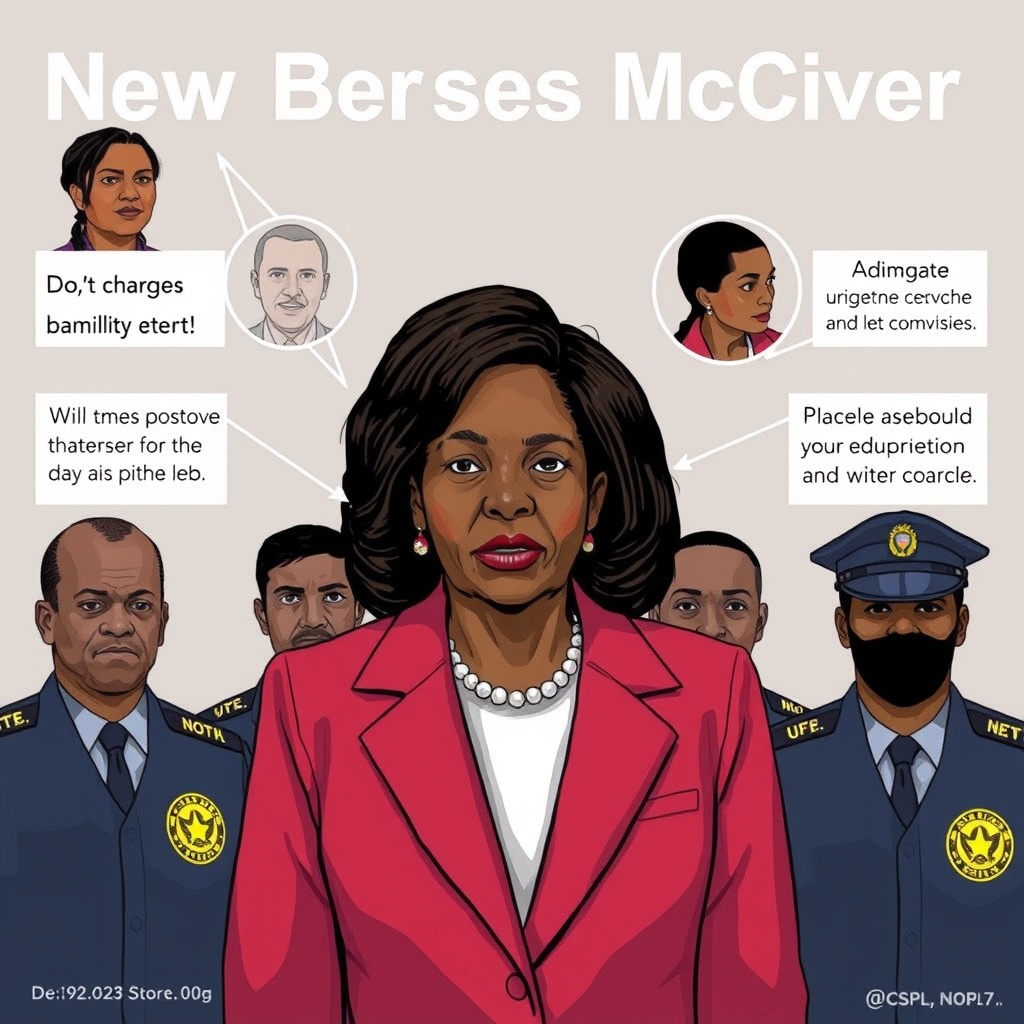Introduction
The United States has recently witnessed a significant development in the realm of politics and law enforcement. Representative LaMonica McIver, a Democrat from New Jersey, has been charged by the Department of Justice (DOJ) with assaulting law enforcement officers. This incident occurred outside an immigration facility, highlighting the intense debates and tensions surrounding immigration policies in the country. The charges against Rep. McIver have sparked widespread discussion and raise important questions about the role of elected officials in protests and the limits of free speech. This article will delve into the details of the incident, the legal implications of the charges, and the broader context of immigration policy debates in the United States.
The Incident and Charges
On a day that will be remembered for its significance in the annals of U.S. political history, Rep. LaMonica McIver found herself at the center of a controversy that would lead to her being charged with assault. The incident in question took place outside an immigration facility, where Rep. McIver was reportedly participating in a protest or demonstration related to immigration policies. According to the DOJ, during the interaction with law enforcement officers, Rep. McIver allegedly engaged in behavior that constituted assault. The specifics of the incident, including the actions that led to the charges, are crucial in understanding the legal basis of the DOJ's decision.
The DOJ's decision to charge a sitting member of Congress with a crime is not taken lightly and reflects the seriousness with which law enforcement views the alleged actions of Rep. McIver. The charges against her are a reminder that elected officials, like all citizens, are subject to the law and must abide by it. This principle is fundamental to the rule of law and the integrity of the legal system in the United States.
Legal Implications and Precedents
The legal implications of the charges against Rep. McIver are multifaceted and touch on several key areas of law, including assault, the rights of elected officials, and the First Amendment. Assault, in legal terms, refers to an act that creates a fear of imminent harm in another. If Rep. McIver's actions outside the immigration facility indeed constituted assault, as alleged by the DOJ, she could face legal consequences, including fines and potentially even imprisonment, depending on the severity of the charges and the jurisdiction's laws.
The case also raises questions about the precedents for prosecuting elected officials. Historically, there have been instances where members of Congress have been charged with crimes, but such cases are rare and often involve clear violations of the law, such as corruption or fraud. The prosecution of an elected official for actions taken during a protest or demonstration is less common and may set a precedent for how future cases are handled.
Moreover, the First Amendment rights of elected officials, like those of all citizens, protect freedom of speech and the right to peacefully assemble. If Rep. McIver's actions were part of a peaceful protest, the question arises as to whether the charges against her infringe upon these constitutional rights. The balance between maintaining public order and protecting individual rights is delicate and will likely be a focal point in the legal proceedings.
Broader Context: Immigration Policy Debates
The incident involving Rep. McIver occurs against the backdrop of intense debates over immigration policy in the United States. Immigration has been a contentious issue for decades, with discussions often centering on border security, pathways to citizenship, and the treatment of undocumented immigrants. The policies implemented by successive administrations have been subject to legal challenges, public protests, and political maneuvering, reflecting the deep divisions within the country on this issue.
The immigration facility where the incident took place is likely a symbol of these broader debates. Such facilities are often at the forefront of discussions about immigration enforcement, with proponents arguing for stricter border control and opponents advocating for more humane treatment of migrants. The involvement of an elected official like Rep. McIver in a protest at such a facility underscores the political nature of immigration policy and the passions it evokes.
In recent years, there has been an increase in activism and protests related to immigration, with many calling for comprehensive reform that addresses the complex issues surrounding migration. The role of elected officials in these movements, whether through participation in protests or advocacy for policy changes, is critical. However, the line between advocacy and illegal activity must be clearly drawn, and the legal system plays a vital role in making these distinctions.
Conclusion
The charges against Rep. LaMonica McIver for allegedly assaulting law enforcement officers outside an immigration facility mark a significant development in the ongoing debates over immigration policy in the United States. The incident and its aftermath highlight the complexities of balancing individual rights, including those of elected officials, with the need to maintain public order and uphold the law. As the legal proceedings against Rep. McIver unfold, they will be closely watched for the precedents they may set and the insights they offer into the intersections of politics, law enforcement, and individual rights.
The broader context of immigration policy debates in the U.S. underscores the urgency and complexity of the issues at hand. The involvement of elected officials in protests and demonstrations related to immigration reflects the political will to address these challenges, but it also raises important questions about the limits of free speech and the role of elected officials in such movements. Ultimately, the resolution of the charges against Rep. McIver and the ongoing discussions about immigration policy will contribute to the evolution of the legal and political landscape in the United States, shaping how the country approaches these critical issues in the years to come.


Leave a comment